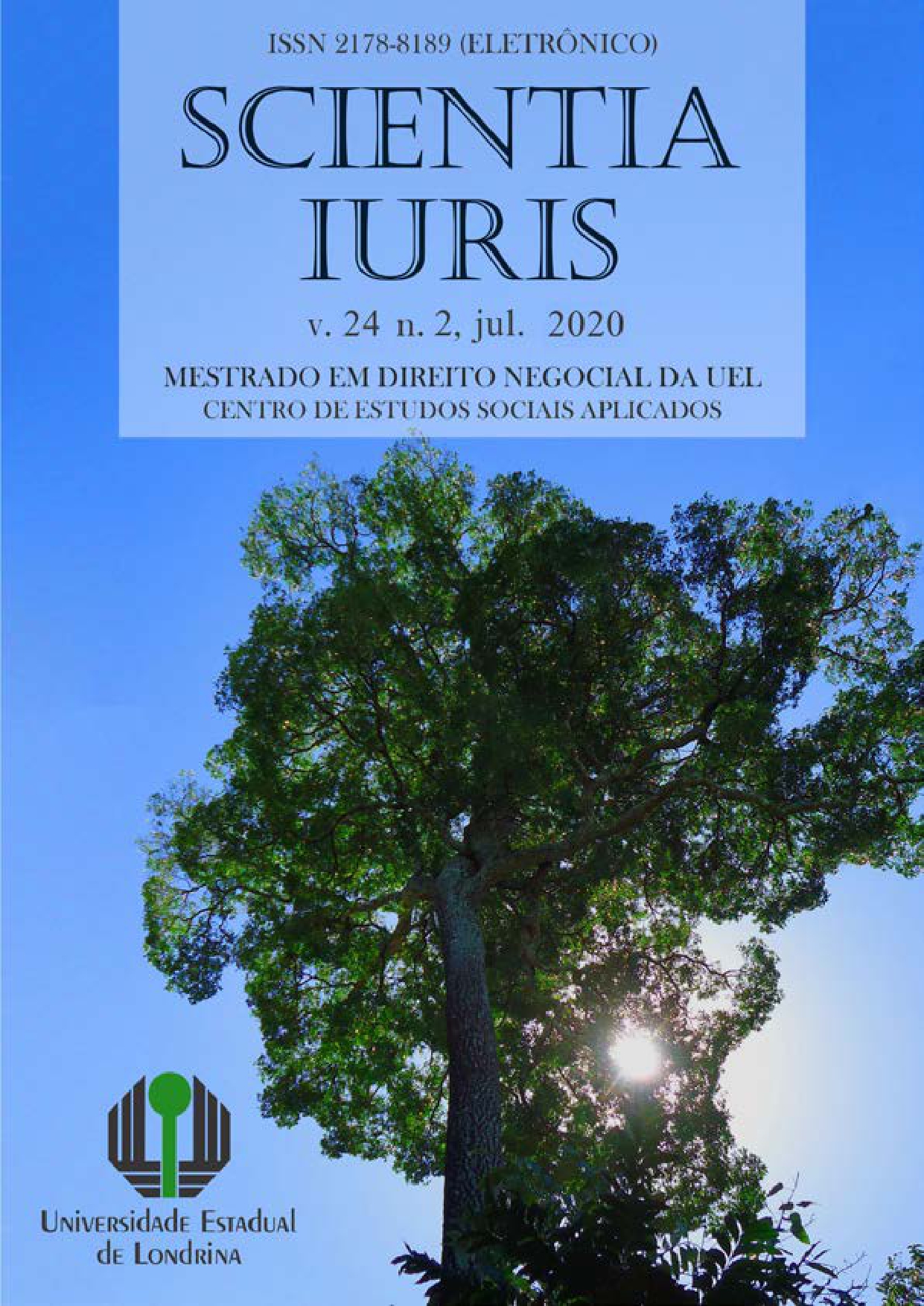Close inspections in the workplace and the violation o the dignity of the human person from the perspective of artificial inteligence and technological advances
DOI:
https://doi.org/10.5433/2178-8189.2020v24n2p135Keywords:
Intimate magazine, Artificial Intelligence, Human dignity.Abstract
This scientific article analyzes fundamental rights and guarantees that regulate social, political and legal aspects of Brazilian citizens lives. In particular, this paper explores constitutional principles that guarantee workplace diversity - specifically, a right stemming from the dignity of the human person. In this sense, this study initially questions whether stopping and frisking employees is an abuse of the employer's directive power and, therefore, violates an employee's contract. In order to better illustrate this context, this paper also analyzes the successive and significant technological advances of the twenty first century, which, with the advent of machines, have been used to monitor employees, in order to prevent them from being stopped and frisked - a practice which can be significantly embarrassing for the employee. Finally, this research draws a parallel between the current progress of automation in the workplace and the arrival of artificial intelligence in the labor market as a strong ally for progress within business spaces. In order to reach our conclusions, this study utilized the inductive method with the use of comprehensive scientific observations.Downloads
Download data is not yet available.
Downloads
Published
2020-07-31
How to Cite
Baptista Marques, A. P., & Messias da Silva, L. M. (2020). Close inspections in the workplace and the violation o the dignity of the human person from the perspective of artificial inteligence and technological advances. Scientia Iuris, 24(2), 135–148. https://doi.org/10.5433/2178-8189.2020v24n2p135
Issue
Section
Artigos
License
Copyright (c) 2022 Scientia Iuris

This work is licensed under a Creative Commons Attribution 4.0 International License.
The journal reserves the right to modify, in the original text of the submitted article, normative, spelling and grammatical mistakes in order to maintain the cultured standard of language and the credibility of the journal. The journal will respect the authors' writing style. Changes, corrections or suggestions of conceptual order will be sent to the authors, when necessary. In such cases, the articles will be re-examined. The final exams will not be sent to the authors. The published works become the property of the journal, in other words, its total or partial reprinting is subject to the express authorization of the journal. In all subsequent citations, the original source of publication shall be cited and in the case of Photographic Speeches, shall be approved by the original author. The opinions expressed by the authors of the journal's articles are of their sole responsibility.

















